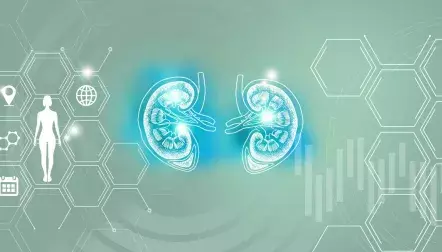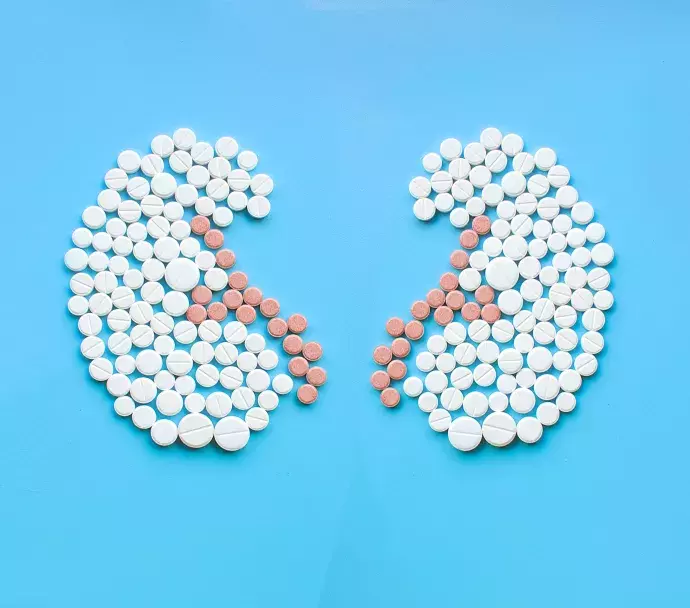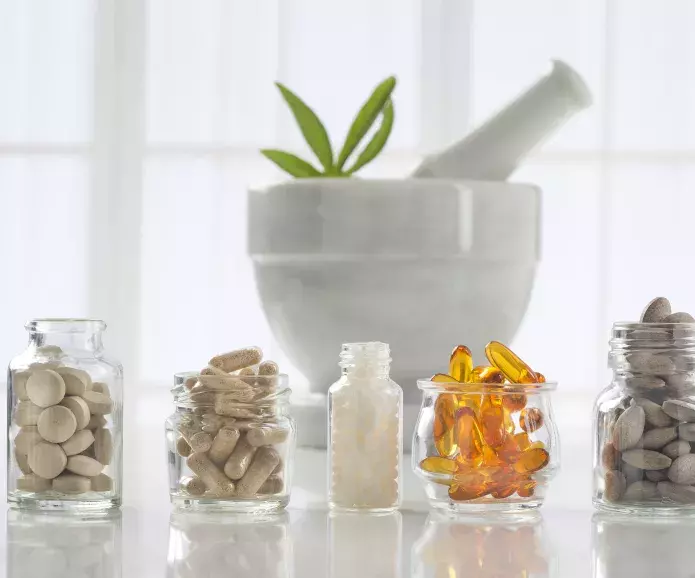
Medicines to manage kidney disease
Discover how medicines for chronic kidney disease can ease symptoms, slow disease progression and prevent complications.

Understanding the treatment options for chronic kidney disease can be challenging, but having clear, concise information shouldn't have to be. Below, you'll find details about how various medicines work, potential side effects, and how they might fit into your overall health strategy. We believe in providing you with the knowledge to make informed decisions about your care, so you can lead a healthy and happy life.
From controlling symptoms to slowing disease progression, each medicine plays an important role.
Diabetes
Diabetes is one of the most common causes of kidney disease, and it is the number one cause of kidney failure, which is when your kidneys have stopped working well enough for you to survive without dialysis or a kidney transplant. There are many medicines to treat diabetes, including:
- For type 1 diabetes, insulin shots are the main treatment. They replace the hormone insulin that your body is not able to make.
- For type 2 diabetes, doctors may use a variety of medicines to help lower your blood sugar. These may include:
- Metformin is the most common medicine used to treat type 2 diabetes. It helps to lower your blood sugar to prevent or slow damage to your kidneys.
- Finerenone is a type of medicine called a non-steroidal mineralocorticoid receptor antagonist (nsMRA) and is used for people who have both CKD and type 2 diabetes.
Glucagon-like peptide-1 receptor agonists (GLP-1 RAs)
GLP-1 RAs are a class of medicine that help manage blood sugar (glucose) levels. They have been approved to treat people with type 2 diabetes, obesity, and chronic kidney disease in people with type 2 diabetes. These medicines slow down damage to your kidneys by lowering your blood sugar so the filtering units in your kidneys are not damaged by the high levels of sugar. There is currently one GLP-1 RA , Ozempic (semaglutide) that has been approved by the FDA to treat people with type 2 diabetes and chronic kidney disease Some GLP-1 RAs are also used to treat obesity.
Sodium-glucose cotransporter-2 (SGLT2) inhibitors
SGLT2 inhibitors, also called gliflozins, are medicines that help to lower blood sugar commonly used to manage type 2 diabetes. They also keep kidney disease and heart disease from getting worse. Some SGLT2 inhibitors are FDA-approved to treat people who have CKD or heart failure without type 2 diabetes.
Ask your doctor which medicine is right for you to manage your diabetes and prevent damage to your kidneys.
Learn more about diabetes and CKD.
High blood pressure
When your kidneys do not work well, it can cause your blood pressure to be too high. High blood pressure can cause more damage to your kidneys. Your doctor may give you medicine to lower your blood pressure and keep it in a healthy range, including:
- ACE inhibitors (Angiotensin-converting enzyme inhibitors): medicines that lower blood pressure and treat heart failure by relaxing blood vessels, lowering blood pressure, and reducing the workload on the heart.
- Angiotensin receptor blockers (ARBs): medicines that lower blood pressure by widening your blood vessels.
- Beta blockers: medicines that lower blood pressure by blocking the hormone adrenaline, which helps your heart beat more slowly and with less force.
- Diuretics (water pills): medicines that help you urinate (pee) more which helps your kidneys get rid of extra salt and water than can cause high blood pressure.
- Calcium channel blockers: medicines that relax blood vessels and lower workload on the heart by blocking calcium from entering the cells of your heart and blood vessels.
Some of these medicines may cause more problems with your kidneys. Talk to your doctor about which medicine would work best for you.
Learn more about high blood pressure and CKD.
Heart disease
When your kidneys are not working well, they cannot support other parts of your body. This can cause problems with your heart. Your doctor may prescribe medicines to control your heart disease, including:
- Calcium channel blockers: medicines that relax blood vessels and lower workload on the heart by blocking calcium from entering the cells of your heart and blood vessels.
- Diuretics (water pills): medicines that help your kidneys get rid of extra salt and water and help you urinate (pee) more. Aldosterone receptor blockers are a type of diuretic to treat congestive heart failure (CHF).
- ACE inhibitors (Angiotensin-converting enzyme inhibitors): medicines that lower blood pressure and treat heart failure by relaxing blood vessels, lowering the blood pressure, and reducing the workload on the heart.
- Beta blockers: medicines that lower blood pressure by blocking the hormone adrenaline, which helps your heart beat more slowly and with less force.
- Potassium binders: medicines to help your body get rid of extra potassium. When your kidneys are not working well, they do not take enough potassium out of your blood. Too much potassium in your blood can cause problems with your heart and other muscles.
Some of these medicines may cause more problems with your kidneys. Talk to your doctor about which medicine could work best for you.
Learn more about heart disease and CKD.
High cholesterol
Cholesterol is a waxy, fat-like substance in your blood. When too much cholesterol builds up in your arteries, it can prevent blood from flowing to certain parts of your body, including your kidneys. High cholesterol can cause kidney disease to get worse and can lead to kidney failure. Your doctor may prescribe medicines called statins. Statins help lower cholesterol to help blood flow through your body more easily.
Anemia
Anemia is not having enough red blood cells in your body. When your kidneys are not working well, they do not make enough of a hormone called erythropoietin (EPO), which sends a signal to your body to make more red blood cells. This leads to anemia. If you have anemia, your doctor may prescribe:
- Erythropoiesis-stimulating agent (ESA): an injection to help treat and prevent anemia by sending a signal to your body to make more red blood cells. Your doctor will monitor your labs carefully to prevent your hemoglobin levels from going to high.
- Iron supplements: a mineral that helps your body make red blood cells. Without enough iron, your ESA treatment will not work as well to help make more blood cells. You can take iron pills, have iron put into your bloodstream through an injection or receive iron during your dialysis treatment.
- HIF (hypoxia inducible factor) stabilizers: a newer class of medicines that work to enhance the body's natural response to lower oxygen levels, leading to an increase in natural production of red blood cells. This can be used for treating anemia in both patients with CKD who are on dialysis and not on dialysis.
Learn more about anemia and CKD.
Metabolic acidosis
Metabolic acidosis is a buildup of acid in your body. Healthy kidneys take acid out of your body through urine (pee) and keep the right amount of a chemical called bicarbonate in your blood. Bicarbonate balances acid levels in your body. If your kidneys are damaged, they cannot keep the right amount of bicarbonate in your body, which can lead to too much acid in your body.
If you have metabolic acidosis, your doctor may prescribe sodium bicarbonate (the active ingredient in baking soda) in pill form to help balance the acid in your blood and help slow kidney disease.
For some people, taking a sodium bicarbonate supplement can make kidney damage worse. Always talk with your doctor before you take sodium bicarbonate or any other medicine to treat acid in your blood.
Bone disease
When your kidneys are not working well, you have a higher chance of bone disease. Your doctor may prescribe:
- Phosphate binders: a medicine to help your body get rid of extra phosphorus in your blood during digestion. When your kidneys are not working well, they do not take enough phosphorus out of your blood. Having too much phosphorus in your blood can make your bones weak. Learn more about high phosphorus and kidney disease.
- Calcium and Vitamin D: supplements to help balance the calcium and vitamin D in your body. When your kidneys are not working well, you can have too much or too little calcium and vitamin D. Not having the right amount of calcium and vitamin D can cause damage to your bones.
Secondary hyperparathyroidism (SHPT)
Secondary hyperparathyroidism (SHPT) is a type of hyperparathyroidism. Hyperparathyroidism is a disease that causes your parathyroid glands to make too much parathyroid hormone (PTH). Too much PTH in the blood can cause bone disease and other health problems from the build up of calcium in organs like the heart and blood vessels. People with CKD have a higher chance of SHPT because their kidneys don't balance calcium and vitamin D levels, which tells their parathyroid gland to make more PTH.
If you have SHPT, your doctor may prescribe:
- A calcimimetic: medicines that tell your parathyroid glands to make less PTH
- Calcium or vitamin D: supplements to help balance the calcium and vitamin D in your body
Your doctor will also monitor calcium and PTH levels in your blood to adjust treatment and prevent complications like abnormal calcium levels.

Are there vitamins I should not take?
Tell your doctor about all of the vitamins you are taking. If you have CKD, you should not take vitamins A, D, E and K unless your doctor prescribes them. These vitamins can build up in your system if your kidneys are not working well to filter extra vitamins out.
If you start dialysis, your vitamin needs may change. Talk to your doctor about any changes you should make if your treatment plan changes.
Are herbal supplements safe for kidney patients?
People with kidney disease should be extra cautious about using herbal supplements because they can interact with kidney medicines and make kidney problems worse. There are some herbal supplements people with CKD should avoid at any stage of kidney disease. Always talk to your doctor before taking any herbal supplements.
Corticosteroids and kidney disease
Corticosteroids, like prednisone are used to treat a variety of inflammatory diseases. Kidney diseases treated with this medicine include lupus nephritis, vasculitis, and other forms of glomerulonephritis.
How will I know which medicines are right for me?
The only way to know which medicines are right for you is to talk to your doctor. Your doctor will choose medicines for you based on many factors, including:
- Other medicines you are taking
- The stage of your kidney disease
- Your other health problems
Talk to your doctor and other health care professionals to understand all your prescribed medicines:
- Learn the names of the medicines your doctor prescribes
- Understand how each medicine works to keep you healthy
- Know when to take different medicines, such as before bed or after eating
- Know which medicines you can or cannot take together
Read more about medicine to help prevent and manage CKD and health problems related to CKD:
- Beta Blockers
- Diuretics
- Finerenone
- Insulin
- Metformin
- Statins
- Ace
- GLP-1
- SGLT2
- Prednisone
- Aspirin
- Herbal supplements
Always talk to your doctor before you start or stop any medicines, including any vitamins and supplements.
Your donation fuels our fight
When you give to AKF, you do more than make a donation. You provide lifesaving assistance when patients have nowhere else to turn. You demonstrate that someone cares. And you join us in fighting kidney disease on all fronts: from prevention and research to treatment and transplant.

